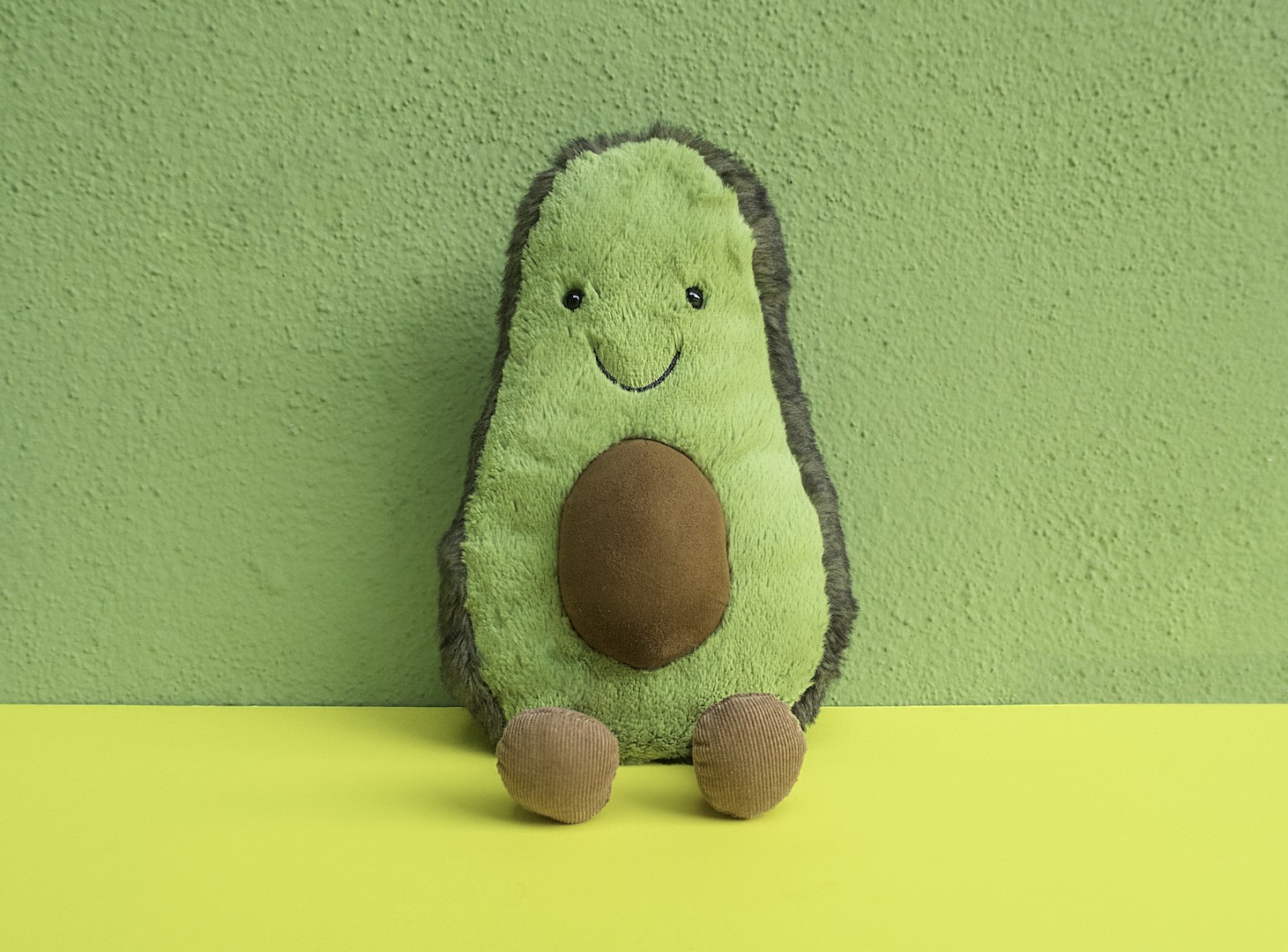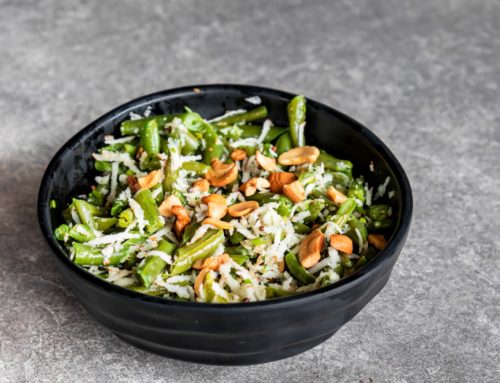Honestly, I write about veganism so much that it’s becoming a ongoing inside joke between me, myself, and I. Rest assured, it’s not that I’m particularly hell-bent on making every last person I know aware of the fact that I’m vegan — rather, it’s just that the subject of veganism, itself, acts as such an ongoing and positive source of inspiration for me.
It has ultimately improved every aspect of my life for the better.
No, but really (hand on my heart), the choice to trade in my SAD eating habits — aka those of the Standard American Diet — for a plant-based lifestyle centered around whole-grains, legumes, and fresh fruits and vegetables, is quite simply one of the best decisions I’ve ever made.
Not only did going vegan serve as my initial prompt for getting up to speed on how to properly research and write about topics such as consumer psychology, environmental science, institutionalized healthcare, and government policy (to name a few), but it also made me a more successful human being.
“Success,” in this context, being selfishly quantified by my own personal happiness. After all, I can’t think of any better way to be successful than to be truly and abundantly happy.
You see, I really think this whole eating plants thing has something to it.
In fact, so much so that when a co-worker approached me the other day and asked me, “How is it that you’re always in such a good mood?” my immediate response was “to tell you the truth, I think it has a lot to do with the way I eat.”
And it turns out I’m not the only one. A simple google search will return thousands of results about the benefits of a plant-based diets as they pertain to happiness — results that range from books and personal anecdotes, to peer-reviewed research studies, and everything in between.
So, here’s my take on the whole thing — and I’m going to break it down for you, nice and simple.
I think eating plant-based makes you happy in three key sectors of life. Namely, these are the physical, the mental, and the spiritual… and here’s how.
Happiness As A Physiological Phenomenon
“Flesh-eating by humans is unnecessary, irrational, anatomically unsound, unhealthy, unhygienic, uneconomic, unaesthetic, unkind and unethical. May I elaborate?”
— Helen Nearing
They say what you put in is what you get out, and there is an increasing number of studies that highlight the physical associations between a plant-based diet and benefits to mood, energy, and overall health.
In a series of recent experiments, it was found that individuals on a plant-based diet experienced significantly fewer negative emotions, and reported an elevation in mood more frequently when compared to their omnivorous counterparts (1).
Furthermore, research found that people who eat predominantly plant-based are scientifically less likely to suffer from stress and the effects of anxiety — with meat-eating individuals who switch to a plant-based diet experiencing a noticeable reduction in stress levels after only two weeks (2).
If you’re interested in the specific mechanisms of animal-based foods that scientists believe are responsible for its negative effect on well-being, check out a nutrition-focused article I wrote called, “6 Foods That Might Be Negatively Affecting Your Maximum Happiness.’
I mean, 9 out of 10 of the top causes of death and disability in the U.S. are preventable, direct consequences of our eating habits — and ones that are proven to affect vegans significantly less. So, alongside the physiological improvements to well-being and general mood, also exists the peace of mind that accompanies the state of simply being healthier (3, 4).
And in addition to the obvious advantages to personal happiness that things such as living longer and avoiding many of the leading killer diseases might provide, people eating plant-based also suffer lower rates of so called, “inconvenience ills;” these are things such as ulcers, migraines, hemorrhoids, varicose veins, fewer surgeries, and more infrequent hospitalizations (of both major and minor kinds).
On top of this, the plant-based community is estimated to have around halfthe odds of requiring drugs in order to function day-to-day — including sleeping pills, laxatives, antacids, pain medications, aspirin, insulin, and blood pressure tablets (5).
It makes sense why a person avoiding all these hassles might experience an elevation in mood…
What’s more, however, is that the consumption of higher quantities of fruits and vegetables has unequivocally been shown to result in levels of increased vigor, calmness and general happiness. In fact, it’s theorized that a higher consumption of vegetables (somewhere around 6–10 servings per day) may offer a decrease in the risk of developing depression by up to 62% (6, 7).
If this is indeed the case — as the journal Nutritional Neuroscienceconcludes — then switching to a plant-based and/or vegan diet can and should be considered a “non-invasive, natural and inexpensive therapeutic means” of supporting of a healthy and happy brain (8).
This is exactly how I think eating plant-based has the ability to make you a happier person physically.
Happiness As A Mental Phenomenon
A peculiar thing happens when many people first go vegan and that is, they feel lighter.
Sure, this could just be the result of improved digestion or increased energy (both of which would fall into the category above), but I actually think it has more to do with a shift in mindset.
This is where we’ll discuss a plant-based diet in the more specific context of veganism, AKA the “more-than-just-a-diet” state of eliminating harm to other sentient beings as far as the reality of our existence on earth permits. AKA not eating animals for ethical reasons — above all.
Research shows that, when asked, the vast majority of people will maintain that they love and, indeed, wish to protect animals from inhumane treatment. Fact is: the vast majority of people also choose to eat animal flesh, creating an automatic incongruence between their actions and beliefs that fits the definition of something referred to in psychology as “cognitive dissonance (9).
This phenomenon — and specifically the becoming free of this phenomenon that coincides with the switch to a vegan diet — is what I believe contributes to this overwhelming feeling of a weight being lifted… of a lighter body and mind.
This is because when we experience cognitive dissonance, our vision of the entire world becomes clouded. We shift from a state of using our intellect to guide and craft our decisions throughout the day, to one that focuses more on our perceptions, emotional responses, and ego.
And, I assure you, this is not just a matter of opinion.
Experts in this field have found, time and time again, that people who have a greater tendency to perceive animals as inferior to humans, also have a greater tendency to perceive other humans as inferior (10, 11).
This is because as soon as we become comfortable with the mental inconsistency that arises when there’s difference between what we know(i.e. “animal suffering is bad”) and what we do (i.e. “I like to eat animals”), we also get better at applying this faulty logic to other areas of our lives (i.e. “some humans are more superior than others”).
With that being said — there is hope. Research shows that the opposite is also true: individuals who have a greater tendency to perceive animals as similar to humans (i.e. “we shouldn’t be eating either them), also have a greater tendency to express moral concern to our fellow humans. In this case, it was specifically moral concern towards immigrant and minority groups that was tested (12).
“When positive change has occurred, no matter how small, we feel the godliness within ourselves. As we see the goodness within ourselves, we recognize the good in others.”
— Sandra Kimler
So, in terms of how eating a plant-based (vegan) diet makes you a happier person, it’s not altogether improbable that happiness is really just the by-product of being a better person. A kinder, more understanding, empathetic, morally-consistent person.
I believe when you eliminate the incongruence between what comes out of your mouth and what goes into it, you are, in effect, allowing a more pure form of happiness to internally (and externally) benefit your life.
Happiness As A Spiritual Phenomenon
What about the switch that occurs — not in physical health, or subconscious perspective and mindset— but in regards to inner peace and energetic vibration?
Now, don’t get me wrong, I take one look at the word “vibration” being used in an article and, more often than not, I click away. I’m all for people embracing whatever it is that floats their boat, but I like to keep both feet firmly on the ground when it comes to the discussion of scientific claims.
This, then, is the one section where I’m going to need you to just hear me out.
When I went vegan there were a handful of changes that I began to note. First and foremost, that sluggish post meal-time slump was lifted and replaced with a mental refresh and an influx of energy. I stopped wanting to sleep immediately after eating my food and unlocked a wave of increased stamina and agility, instead.
My skin began to glow, the satisfaction of my new lifestyle practically spilling out of my pores. My self-confidence shot through the roof and I ended the mental war I had waged against my body (and its reflection in the mirror) for the six to eight months prior. I started tuning in to the needs of myself and those around me in a different, more acute, way.
With the refrain from the habit of criticizing myself, also came the conscious provocation to stop judging others, too; the profound understanding that people can only meet you where they have met themselves is one that struck me particularly deeply.
My sensitivity towards violence, suffering, and aggression shot through the roof, and horror films and documentaries about crime no longer thrilled me — they drained me.
The plane of awareness upon which I functioned changed.
I leveled up.
I clocked on.
I shifted spiritually, for the better.
But it really possible this all came as the result of just a change in diet? Consider the quote below — it’s a long one but I think giving it adequate contemplation is really worth it:
“When you consume animal products, you ingest violence. You ingest the unimagineable fear and terror of the slaughterhouse. You ingest the profound, crushing sadness of a mother whose baby was taken away to be sold for veal. You ingest the distress of being crammed into a battery cage or “cage-free” prison until you are stuffed into a crate and killed in a most violent way. You ingest all of the suffering — and the death — of being who, like you wanted to live.
There is mounting evidence that animal foods are detrimental to physical health. But I have no doubt at all that they are absolutely fatal to the health of the spirit.”
— Gary L. Francione
You see, despite there being no way to scientifically measure the impact different foods may have on the health of the spirit, there are some things that just make sense. Empiricism is the scientific method in its purest form after all, and I know I speak for the vast majority of vegans when I talk about how it feels to consume foods that never had to suffer in order to end up on my plate.
When you fill your stomach with foods that once had a heart beat, with bodies that experienced one wave of adrenaline after another as they waited in single file line for their turn with the bolt-gun, you become inevitably affected.
How could the reality be anything else? How could we eat death and suffering and expect to feel alive and happy?
Now, then, I am a firm believer that the less suffering you bring, the more compassion you feel. The more compassion you feel, the more joy and love that you attract. Most people I know would give an arm and a leg to feel this way, yet people are so quick to close their mind to any experiment involving veganism.
“The possibility of stepping into a higher plane is quite real for everyone. It requires no force or effort or sacrifice. It involves little more than changing our ideas about what is normal.”
— Deepak Chopra
But this I have found to be inexplicably true. Eating plant-based does make you a happier person. Try for 6 months, maybe — I promise you have nothing to lose and only everything to gain.
Alexandra Walker-Jones — June 2021
- Beezhold BL, Johnston CS. Restriction of meat, fish, and poultry in omnivores improves mood: a pilot randomized controlled trial. Nutr J. 2012 Feb 14;11:9
- Beezhold B, Radnitz C, Rinne A, DiMatteo J. Vegans report less stress and anxiety than omnivores. Nutr Neurosci. 2015 Oct;18(7):289–96
- Murray CJ, Atkinson C, Bhalla K, Birbeck G, Burstein R, Chou D, Dellavalle R, Danaei G, Ezzati M, Fahimi A, Flaxman D, Foreman, Gabriel S, Gakidou E, Kassebaum N, Khatibzadeh S, Lim S, Lipshultz SE, London S, Lopez, MacIntyre MF, Mokdad AH, Moran A, Moran AE, Mozaffarian D, Murphy T, Naghavi M, Pope C, Roberts T, Salomon J, Schwebel DC, Shahraz S, Sleet DA, Murray, Abraham J, Ali MK, Atkinson C, Bartels DH, Bhalla K, Birbeck G, Burstein R, Chen H, Criqui MH, Dahodwala, Jarlais, Ding EL, Dorsey ER, Ebel BE, Ezzati M, Fahami, Flaxman S, Flaxman AD, Gonzalez-Medina D, Grant B, Hagan H, Hoffman H, Kassebaum N, Khatibzadeh S, Leasher JL, Lin J, Lipshultz SE, Lozano R, Lu Y, Mallinger L, McDermott MM, Micha R, Miller TR, Mokdad AA, Mokdad AH, Mozaffarian D, Naghavi M, Narayan KM, Omer SB, Pelizzari PM, Phillips D, Ranganathan D, Rivara FP, Roberts T, Sampson U, Sanman E, Sapkota A, Schwebel DC, Sharaz S, Shivakoti R, Singh GM, Singh D, Tavakkoli M, Towbin JA, Wilkinson JD, Zabetian A, Murray, Abraham J, Ali MK, Alvardo M, Atkinson C, Baddour LM, Benjamin EJ, Bhalla K, Birbeck G, Bolliger I, Burstein R, Carnahan E, Chou D, Chugh SS, Cohen A, Colson KE, Cooper LT, Couser W, Criqui MH, Dabhadkar KC, Dellavalle RP, Jarlais, Dicker D, Dorsey ER, Duber H, Ebel BE, Engell RE, Ezzati M, Felson DT, Finucane MM, Flaxman S, Flaxman AD, Fleming T, Foreman, Forouzanfar MH, Freedman G, Freeman MK, Gakidou E, Gillum RF, Gonzalez-Medina D, Gosselin R, Gutierrez HR, Hagan H, Havmoeller R, Hoffman H, Jacobsen KH, James SL, Jasrasaria R, Jayarman S, Johns N, Kassebaum N, Khatibzadeh S, Lan Q, Leasher JL, Lim S, Lipshultz SE, London S, Lopez, Lozano R, Lu Y, Mallinger L, Meltzer M, Mensah GA, Michaud C, Miller TR, Mock C, Moffitt TE, Mokdad AA, Mokdad AH, Moran A, Naghavi M, Narayan KM, Nelson RG, Olives C, Omer SB, Ortblad K, Ostro B, Pelizzari PM, Phillips D, Raju M, Razavi H, Ritz B, Roberts T, Sacco RL, Salomon J, Sampson U, Schwebel DC, Shahraz S, Shibuya K, Silberberg D, Singh JA, Steenland K, Taylor JA, Thurston GD, Vavilala MS, Vos T, Wagner GR, Weinstock MA, Weisskopf MG, Wulf S, Murray; U.S. Burden of Disease Collaborators. The state of US health, 1990–2010: burden of diseases, injuries, and risk factors. JAMA. 2013 Aug 14;310(6):591–608. doi: 10.1001/jama.2013.13805. PMID: 23842577; PMCID: PMC5436627.
- Lenders C, Gorman K, Milch H, Decker A, Harvey N, Stanfield L, Lim-Miller A, Salge-Blake J, Judd L, Levine S. A novel nutrition medicine education model: the Boston University experience. Adv Nutr. 2013 Jan 1;4(1):1–7. doi: 10.3945/an.112.002766. PMID: 23319117; PMCID: PMC3648731.
- Knutsen SF. Lifestyle and the use of health services. Am J Clin Nutr. 1994;59(5 Suppl):1171S-1175S.
- White BA, Horwath CC, Connor TS. Many apples a day keep the blues away-dialy experiences of negative and positive affect and food consumption in young adults. Br J Health Psychol. 2013;18(4):782–98.
- Tsai AC, Change T-L, Chi S-H. Frequent consumption of vegetables predicts lower risk of depression in older Taiwanese- results of a prospective population-based study. Public Health Nutr.2012;15(6):1087–92.
- Gomez-Pinilla F, Nguyen TTJ. Natural mood foods: the actions of polyphenols against psychiatric and cognitive disorders. Nutr Neurosci. 2012;15(3):127–33.
- Bastian B, Loughnan S. Resolving the Meat-Paradox: A Motivational Account of Morally Troublesome Behavior and Its Maintenance. Pers Soc Psychol Rev. 2017 Aug;21(3):278–299
- Bastian, B., Costello, K., Loughnan, S., & Hodson, G. (2012). When closing the human–animal divide expands moral concern: The importance of framing. Social Psychological and Personality Science, 3(4), 421–429.
- Costello, K., & Hodson, G. (2010). Exploring the roots of dehumanization: The role of animal — human similarity in promoting immigrant humanization. Group Processes & Intergroup Relations, 13(1), 3–22.





